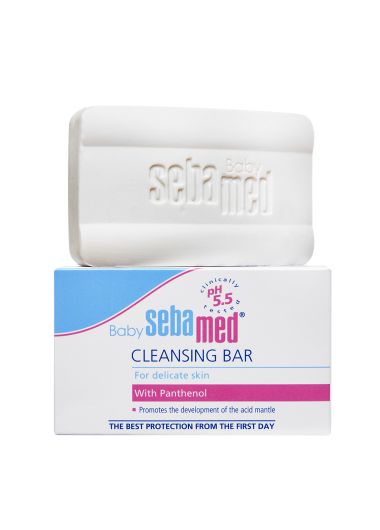Eat Right During Pregnancy
by Sebamed | Feb 13, 2023

A balanced and nutritious diet is extremely important during pregnancy in order to keep you healthy and ensure your baby’s wellbeing. However, this shouldn’t be confused with simply eating more – that’s primarily required during the last couple of months when your baby is growing rapidly. A “healthy” meal plan involves eating the right food, at the right time and in the right quantity. Here are a few points to keep in mind when you are charting out your diet during your pregnancy.
DO NOT “DIET”
Avoid following any of the fad diets during this time. Most “diets” exclude certain groups of food especially carbohydrates and that can in turn cause certain nutrition deficiencies. Unless otherwise advised by your doctor, do not exclude food groups from your meals. Have wholesome foods but don’t overload your stomach. Eat about six small meals a day or eat something every 3-4 hours. Moderation is the key, eat but practice balance and have them in small portions.
THINGS TO BE AVOIDED
Of course, smoking and alcohol consumption should be avoided, apart from that try to stay away from raw food, undercooked eggs, seafood, organ meat, artificial sweeteners and unpasteurised cheeses. Steer clear of aerated drinks. Observe if you have developed allergic reactions towards certain foods ? certain nuts and veggies like mushrooms and brinjals can be allergic. Speak to your nutritionist, if in doubt.
HAVE SUPPLEMENTS
Consult your doctor and start taking supplements for maintaining nutrient balance in the body, and also to meet your baby’s needs. Calcium, folic acid and vitamin D supplements could be of help and could also address fatigue. While supplements are important always remember that your body needs a certain amount of each nutrient, and higher amounts should be avoided.
CONSUME ALKALINE FOODS
Abstain from or reduce the consumption of foods that cause acidity like coffee, deep fried items, sugar, processed meats and opt for cucumbers, fresh, seasonal fruits and veggies, fresh juices and herbal teas. Drink plenty of water ? at least two litres a day. Eat light dairy products like low fat milk, curd, cottage cheese and buttermilk. Have plenty of coloured veggies like bell peppers, pumpkin, beetroot and greens. Stock up on microgreens and herbs ? they add flavor and nutrition to your meals.
FRESH FROM HOME
Try having home-cooked and fresh meals. You could even grow some herbs in your terrace or balconies. These are not just ideal for you but the growing process itself can be therapeutic for you. While it’s convenient to order from web stores, it may be a good idea to visit farmers markets for your weekly shopping or your local vegetable market/vendor for your daily needs.
DO NOT EXPERIMENT
Avoid exploring new foods or meal plans without your nutritionist’s supervision. There are plenty of dietary choices that are spoken about and available on the internet, like healthier alternatives for grains and so on. They may be good suggestions but are best avoided during pregnancy, unless of course, your doctor recommends it for you.







